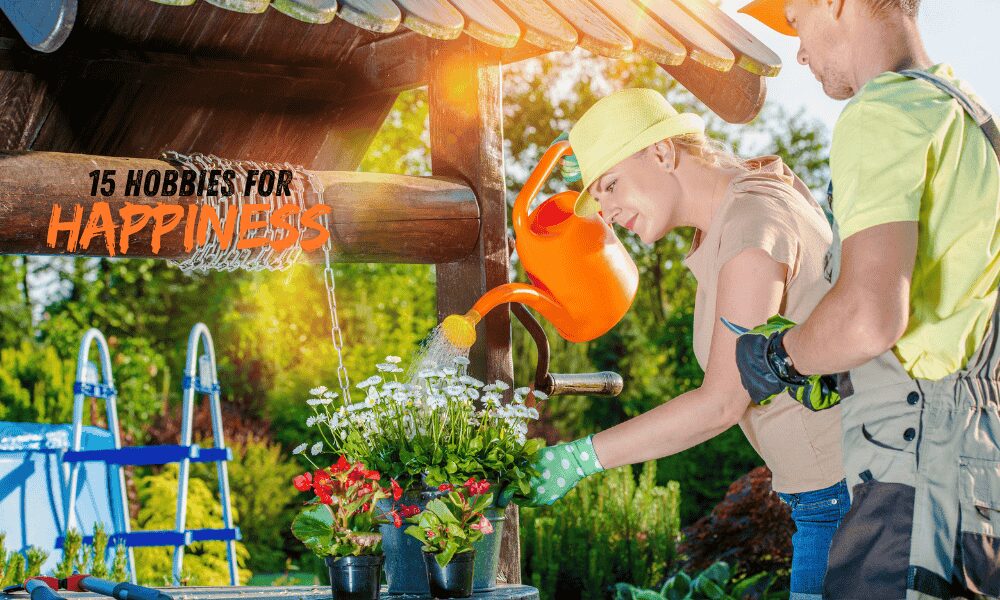It’s Sunday night. You are scrolling endlessly, bouncing between apps, a vague sense of unease settling in. You know you feel unwell, but you can’t quite pinpoint the cause. It’s easy to misdiagnose this feeling as simple boredom, but it’s often something deeper: a form of emotional undernourishment, a lack of meaningful hobbies for happiness that truly lift your spirit.
We instinctively know how to handle physical ailments. A headache prompts us to drink water, a sore throat to sip tea. But when our emotional well-being feels off, we rarely apply the same diagnostic precision. Instead, we grab for the junk food of entertainment, mindless scrolling, binge-watching, hoping for a quick fix that never quite satisfies.
Through extensive research and countless conversations, I have learned that the most effective hobbies work like targeted medicine. This is not about randomly picking up a fun activity; it’s about creating a Personal Peace Protocol. The first and most crucial step is to diagnose what you’re lacking correctly. Finding hobbies for happiness that make you happy starts with understanding what your mind and body are truly asking for.
After surveying hundreds of readers and diving into the psychology of leisure, I realized that matching the hobby to the emotional need was the missing piece.
The Self-Diagnosis Quiz: What Are You Really Craving?
Answer these four questions to find your personalized hobby prescription. This interactive tool will guide you toward a pathway designed to meet your specific emotional needs.
How is your social battery?
Feeling drained and a bit lonely? (Pathway 1)
Feeling overstimulated and needing a break from people? (Pathway 3)
What does your body feel like it needs?
To move, challenge itself, and burn off energy? (Pathway 2)
To rest, be still, and create something with your hands? (Pathway 4)
What kind of break do you dream of?
One filled with laughter, conversation, and other people? (Pathway 1)
One spent in quiet solitude, focused on a single task? (Pathway 3)
When you feel stressed, do you tend to feel…?
Angry, restless, or frustrated? (Pathway 2)
Sad, withdrawn, or uninspired? (Pathway 4)
Based on your answers, you’ll be directed to one of the four pathways below. Each one offers a tailored prescription of hobbies designed to boost your well-being.
The Four Pathways: Your Personalized Hobby Prescription
Once you have identified your core need, you can explore evidence-based hobbies for mental health that are specifically suited to you. This is where the real health benefits of hobbies begin to shine.
Pathway 1: For The Socially Drained (The Connection Prescription)
Core Need: To combat loneliness and build a sense of community.
The social benefits of hobbies are immense, especially when you feel disconnected. Instead of forcing small talk, find an activity that fosters natural interaction.
Deep Dive Example: Urban Gardening
This goes beyond tending to a lone pot on your windowsill. Consider joining a Community Plot Garden. This hobby combines the calming act of nurturing plants with a powerful social element. Imagine sharing tools, trading your surplus zucchini for a neighbor’s ripe tomatoes, and striking up conversations over the garden fence. It’s a low-pressure way to build connections rooted in a shared activity. Take Nancy, a freelance graphic designer from Ohio. After years of working alone from her apartment, she felt profoundly isolated. She signed up for a plot at her local community garden, initially just for the tomatoes. But the real harvest was the community. She told me, I went for the zucchini, but I stayed for the 70-year-old master gardener, Betty, who taught me how to save seeds and became a dear friend. We don’t just garden; we talk about our lives.
Other Hobby Ideas:
- Board Game Nights: Many local cafes host board game nights, offering a structured and fun way to meet new people.
- Improv Comedy Classes: Nothing breaks down barriers faster than shared laughter. Improv forces you to be present and connect with others in a playful environment.
- Historical Reenactment Groups: Find a community that shares your passion for a specific era, creating bonds through a shared, immersive interest.
Pathway 2: For The Physically Restless (The Mastery Prescription)
Core Need: To channel frustration or stagnant energy into tangible progress and achievement.
When you feel restless, the goal is to find a hobby that offers a clear sense of achievement. This is about learning a new skill and seeing concrete results.
Deep Dive Example: Coding a Useless But Fun Project
Forget the pressure of learning to code for a new career. The real joy lies in mastering a new language to build something wonderfully pointless. Create a website that generates cat memes on demand or a program that texts you a daily dad joke. The hobby isn’t about productivity; it’s about the satisfaction of solving a puzzle and making something exist that didn’t before. It’s one of the best hobbies that boosts dopamine through problem-solving.
Other Hobby Ideas:
- Pickleball: This social, less-intense cousin of tennis is easy to learn and provides a great outlet for competitive energy.
- Whittling or Wood Carving: The focused, physical act of shaping wood into an object is incredibly gratifying and produces a tangible result.
- Home Brewing: Master the science and art of brewing your own beer or kombucha, with a delicious reward at the end of the process.
Pathway 3: For The Overstimulated (The Mindfulness Prescription)
Core Need: To quiet a racing mind and find focus in a chaotic world.
If you are feeling overwhelmed, you need a hobby that encourages single-tasking and deliberate, slow-paced focus. The goal is to unplug from the digital noise.
Deep Dive Example: Analog Photography

This is the ultimate antidote to the instant gratification of a smartphone camera. Analog photography forces mindfulness through its limitations: a finite number of shots, no instant preview, and a slow, deliberate development process. It trains you to observe the world more carefully, to be patient, and to become hyper-focused on composing a single, meaningful shot. The anticipation of seeing your developed photos is a joy in itself.
Other Hobby Ideas:
- Bird Language: Join a local Audubon Society walk or simply sit in a park and learn to identify birds by their calls. It requires quiet observation and attunes you to the natural world.
- Restoration Projects: Find an old piece of furniture, a vintage book, or a forgotten tool and bring it back to life. The slow, methodical process of cleaning and repairing is deeply meditative.
- Astronomy: All you need is a clear night sky and a bit of patience. Learning constellations or tracking planets fosters a sense of wonder and perspective.
All you need is a clear night sky and a bit of patience. Learn more at Astronomy.com.
Pathway 4: For The Creatively Blocked (The Expression Prescription)
Core Need: To process complex emotions and express an inner world that’s hard to put into words.
When you feel withdrawn or uninspired, a creative outlet can help you express your feelings safely and constructively. It’s not about creating a masterpiece; it’s about the act of creation itself.
Deep Dive Example: Journaling Adjacent Hobbies

If traditional journaling feels daunting, try creating a Zine. A zine is a small, self-published DIY magazine that can combine anything you want: collage from old magazines, drawings, poetry, personal essays, or even just interesting quotes. It’s a tactile, project-based form of creative expression that’s purely for you or a small circle of trusted friends. Jessica, a recent college grad from New York, felt overwhelmed by the pressure to find her dream job. She started making zines as a way to process her anxiety. I filled one with chaotic collages about my job search fears. Making it did not solve my problems, but it got them out of my head and onto paper. It was like journaling, but louder and more fun. I could finally breathe again.
Other Hobby Ideas:
- Digital Collage: Use free tools like Canva or more advanced software like Photoshop to create visual mood boards or artistic compositions that express your current state of mind.
- Pottery: The physical act of shaping clay on a wheel can be a powerful way to channel and release emotions, turning abstract feelings into a tangible form.
- Learning a Language to Write Poetry In: This combines the intellectual challenge of learning a language with the creative freedom of poetry, offering a new vocabulary to express old feelings.
Filling the Prescription: Your First-Week Plan
A new hobby can feel overwhelming. The key is to start small. Here’s an actionable first-week plan based on your chosen pathway.
Example for Pathway 1 (Community Gardening):
- Day 1: Google [Your City] community garden and make a list of two or three nearby options.
- Day 2: Draft and send an email to one garden coordinator asking about plot availability or volunteer opportunities.
- Day 3: Watch one YouTube video on growing an easy vegetable, like lettuce or radishes.
- Day 4: Go to a local store and buy one packet of seeds. Feel the potential in your hands.
- Weekend: Visit the garden in person. Walk around, and if you see someone, introduce yourself and ask what they’re growing.
Your Health is Your Craft
We would never expect a single pill to cure all our physical ailments. So why would we expect one hobby to fix all our emotional needs? The answer to why hobbies are important for mental health lies in their adaptability. The key is to regularly check in with yourself, diagnose your current need, and adjust your prescription accordingly.
The goal is not to build a perfect garden, write a symphony, or become a coding genius overnight. The goal is to build a more resilient, joyful, and nourished you. Sometimes, that journey starts simply, with a packet of seeds and a five-minute conversation with a stranger.
Which prescription will you start with? Share your diagnosis and your planned remedy in the comments below. I’ll be there cheering you on.
FAQs
Hobbies act like targeted medicine for your well-being. They combat loneliness by building community, reduce stress by promoting mindfulness, and boost happiness by providing a sense of mastery and tangible accomplishment, all of which contribute to better mental and emotional health.
Evidence-based hobbies are those with proven psychological benefits. Gardening (especially in community plots) reduces stress and builds social connection, while analog photography forces mindfulness. Learning a skill like coding a fun project provides a strong dopamine boost from problem-solving and achievement.
Hobbies are crucial because they provide more than just fun; they offer a essential outlet for expression, connection, and stress relief. They help you process emotions, quiet a racing mind, and build resilience, effectively acting as a daily maintenance protocol for your mental and emotional health.
Hobbies transform lonely isolation into meaningful community. Shared activities like community gardening, board game nights, or choir singing create natural, low-pressure opportunities to build friendships rooted in common interests, providing a powerful antidote to the loneliness that so many people experience today.

